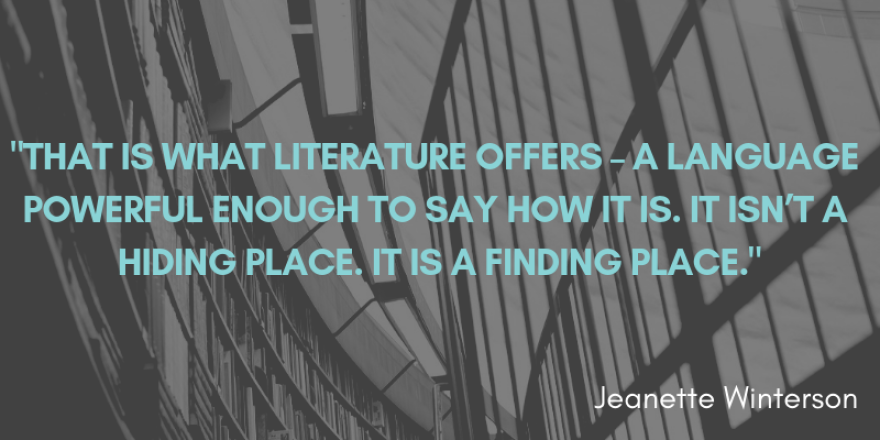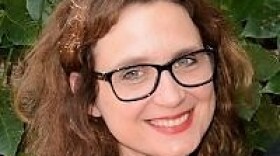When a Book is a Mirror
By Rebecca Howard
Tulsa City-County Library
Ask any serious adult reader to name the book or books that sparked a lifelong passion for the written word and watch how their whole demeanor shifts. It’s like watching someone describe how they met their spouse or when they learned they were going to become a parent. Or, in my case, it resembles the way that I speak about my 70-pound lapdog or a really, really great Americano. Many of us don’t have a single book but several titles that found us at periods in our lives and made all the difference.
For avid readers, certain titles are so integral to our identities that I imagine we could construct a book timeline of our lives. Asking readers about the books that made a difference in their lives is one of my favorite questions. It’s even more enjoyable than sneakily perusing people's personal bookshelves—a guilty pleasure that I indulge in way too often. Those of you with e-readers are ruining this for me, but that’s another column.
Touchstone titles are usually mirror books—those that reflect who you are and affirm your existence. We need mirror books. They say your experience matters. In 2017 The Guardian asked several LGBTQ+ authors about the book that helped them come out. Their responses overflow with emotion. Scottish novelist and poet Jackie Kay speaking of Audre Lorde’s Zami wrote “I cried to think of how lucky I was to have found her.” Val McDermid wrote of Virginia Woolf’s Orlando, “It suggested that falling in love outside the mainstream was not a direct route to misery. And the language glowed, in startling contrast to everything else I came across. It stopped me feeling ashamed.”
A touchstone novelist for me, Jeanette Winterson, writes frequently about the power that literature had in her own life. Her memoir, Why Be Happy When You Could Be Normal? chronicles her harrowing upbringing as the adopted child of a zealously religious and abusive mother whose plan was to make Winterson into a missionary for God. Although books were mostly forbidden in her house, finding stories helped her find herself. She writes:
So when people say that poetry is a luxury, or an option, or for the educated middle classes, or that it shouldn’t be read at school because it is irrelevant, or any of the strange stupid things that are said about poetry and its place in our lives, I suspect that the people doing the saying have had things pretty easy. A tough life needs a tough language – and that is what poetry is. That is what literature offers – a language powerful enough to say how it is. It isn’t a hiding place. It is a finding place.
That quote alone is worth reading Winterson’s memoir if you haven’t. Literature is a “finding place.” Don’t you love that?
Children and young adults in particular need to see their experiences reflected in the pages of books. They need to see characters who look like them, move through the world as they do, eat the same food for dinner, celebrate the same holidays, and have similar family structures. They need to see these books not only on their shelves at home but also on the shelves in their schools and libraries. Representation matters.
If you’re looking for books to share with young people, We Need Diverse Books (WNDB) is a wonderful resource. WNDB is a grassroots organization working so that all children can see themselves in the pages of a book. It’s a tremendous resource for educators, librarians, and parents who want young people not only to see themselves but also to see their classmates, aunties, neighbors, and friends represented responsibly in literature.
I hope this article has you constructing your own book timeline and that you’re considering how and why certain titles so deeply affected you. And while mirror books are vitally important, I hope we’ll all commit to reading some window books as well—those whose authors and/or characters are wholly different from our own background and life experiences. Because window books most definitely can be “finding places” as well.




